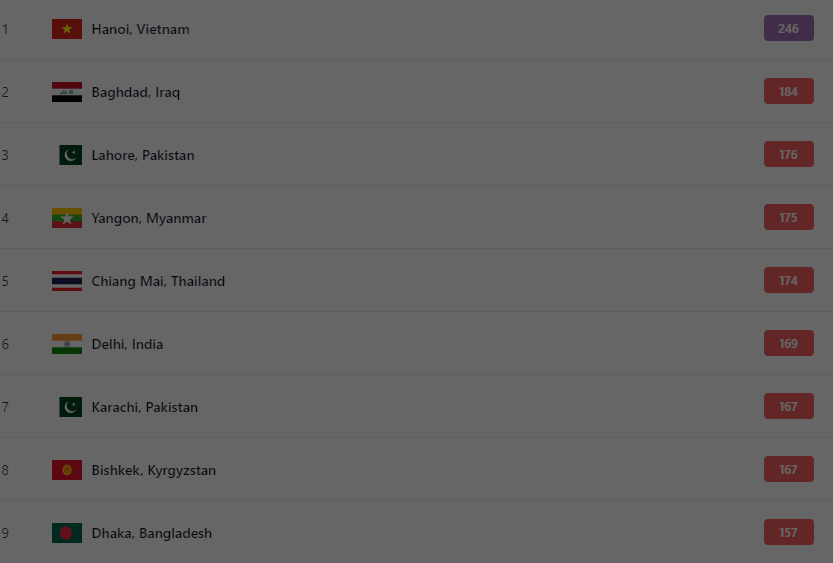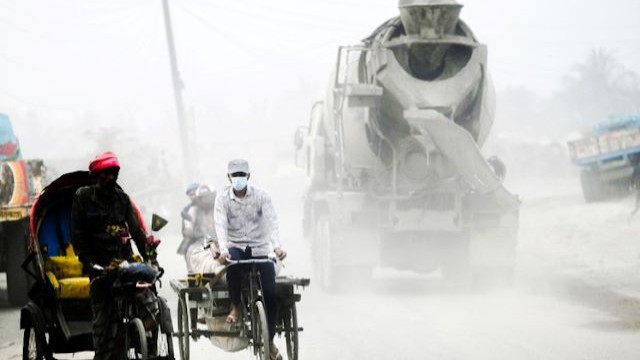Dhaka, the capital of Bangladesh, faces a concerning air quality situation, currently ranking "Ninth globally" among cities with the poorest air quality. As of Thursday, March 6th, 2024, at 9:00 AM, the city's Air Quality Index (AQI) score reached "157", falling into the "unhealthy" category.
This alarming situation follows "Hanoi of Vietnam (246 AQI)", "Baghdad of Iraq (184 AQI)", "Lahore of Pakistan(176 AQI) ", "Yangon of Myanmar(175 AQI)", "Chiang Mai of Thailand(174 AQI)" and "Delhi of India(169 AQI)" which hold the top six positions.

Understanding the AQI:
201-300 AQI: Considered "very unhealthy," posing significant health risks for the general population.
301-400 AQI: Categorized as "hazardous," presenting major health concerns for all residents.
101-200 AQI: Deemed "unhealthy," particularly for sensitive groups like children, elderly individuals, and those with respiratory illnesses.
Air Quality Concerns in Dhaka:
Dhaka has a long history of battling air pollution, with air quality typically deteriorating during winter and improving slightly during the monsoon season. This recurring issue highlights the city's need for effective solutions to address the problem and improve public health.
Global Impact of Air Pollution:
According to the World Health Organization (WHO), air pollution is a significant global health concern, estimated to claim the lives of **seven million people** annually. These deaths are primarily attributed to increased cases of stroke, heart disease, chronic obstructive pulmonary disease (COPD), lung cancer, and acute respiratory infections.































Comment: